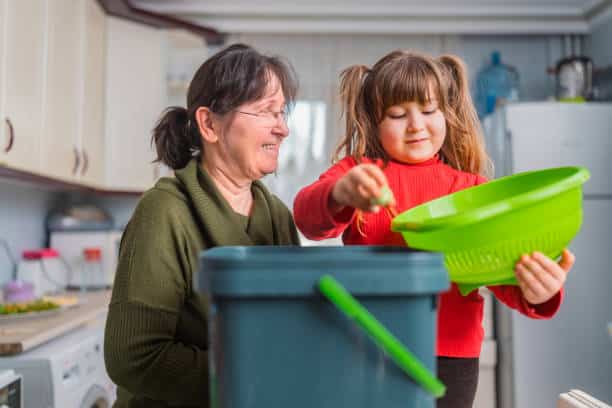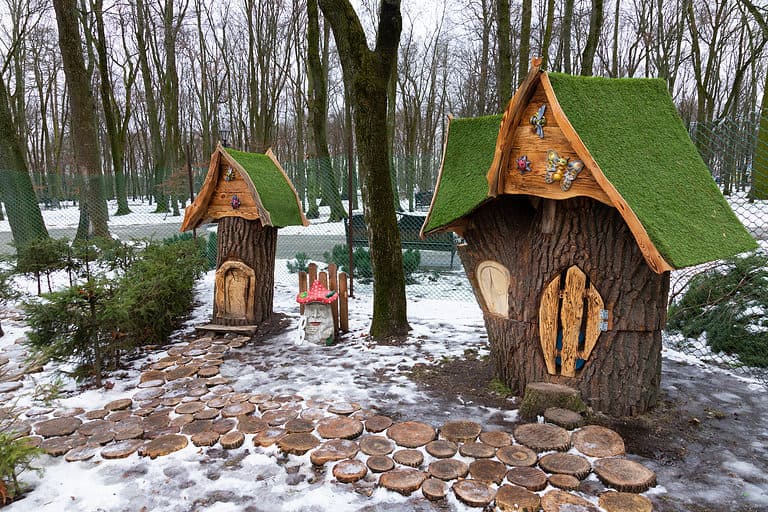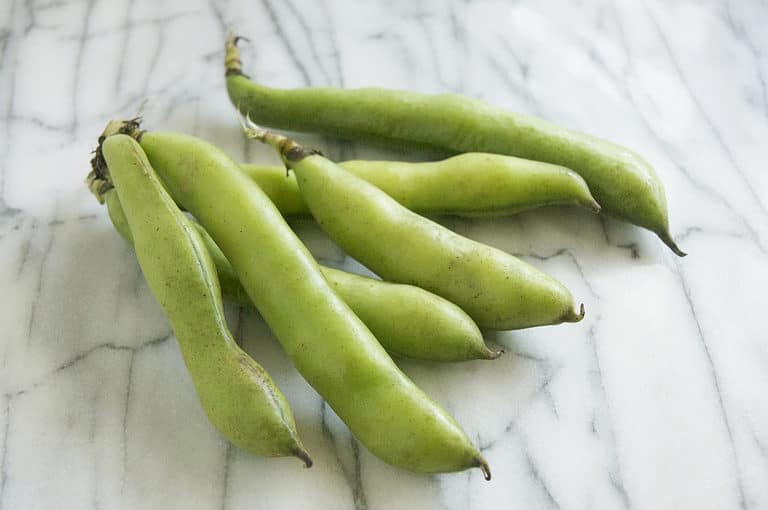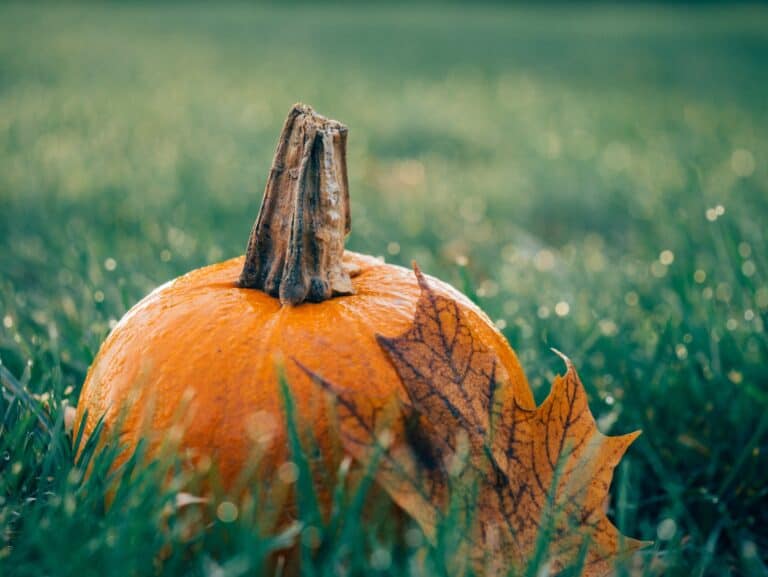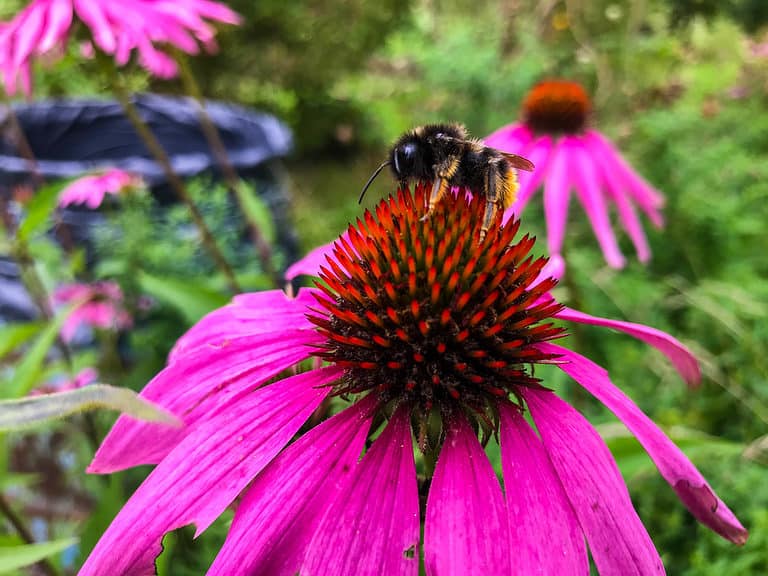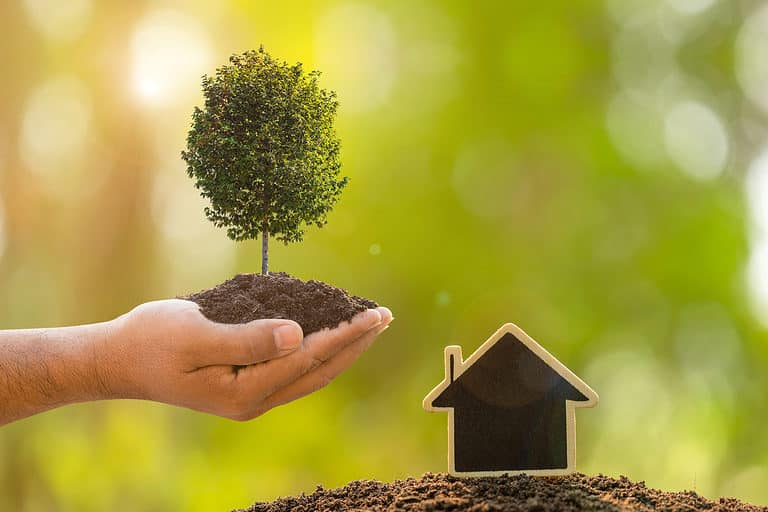Don’t Throw It Out, Let’s Discuss How To Compost
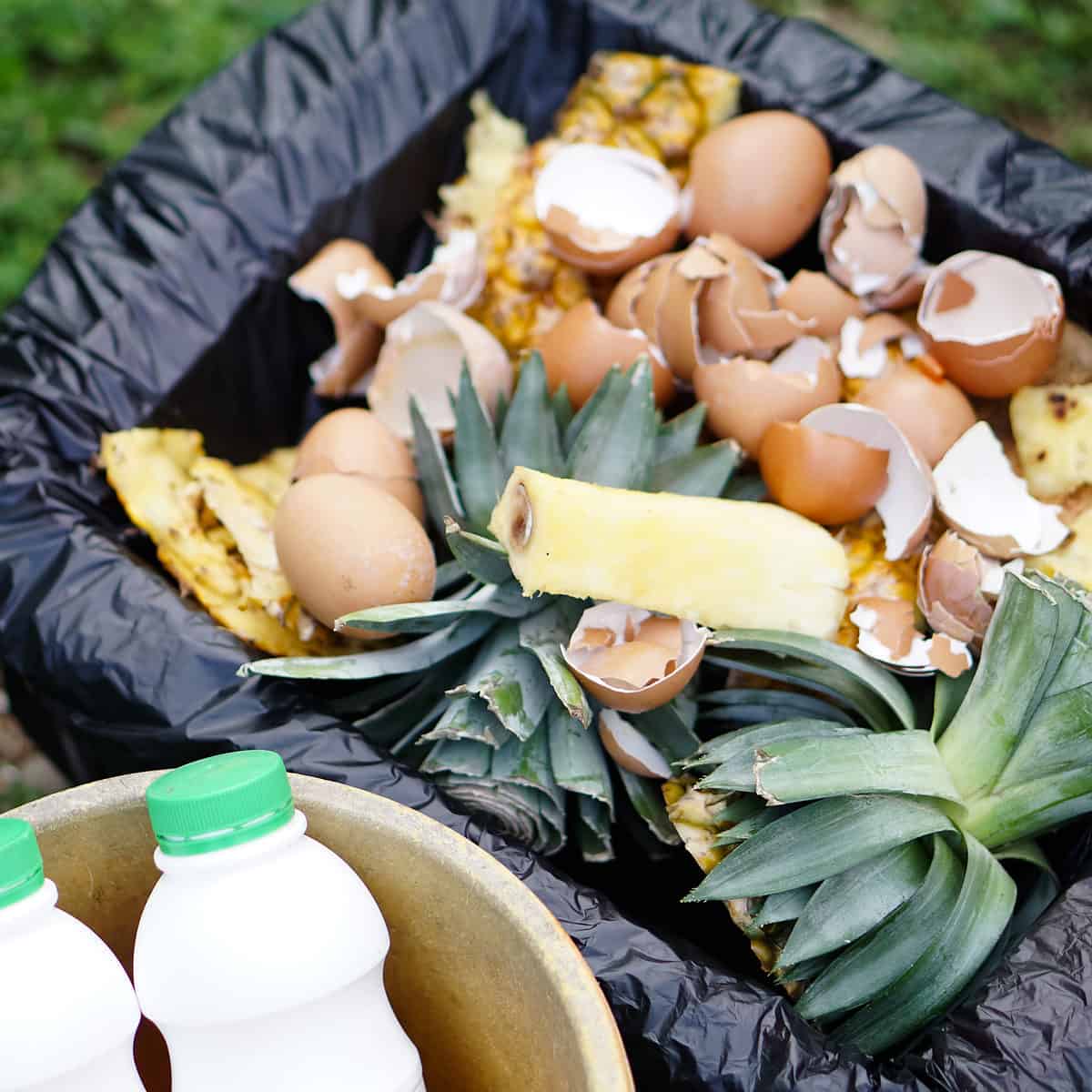
Composting is a natural process that breaks down organic matter, such as food scraps and yard waste, into a nutrient-rich soil amendment. Not only does it reduce the amount of waste sent to landfills, but it also helps to enrich the soil in your garden or landscape. If you don’t know how to start, here are some tips to get started on your very own compost pile.
How to Start Composting for Beginners
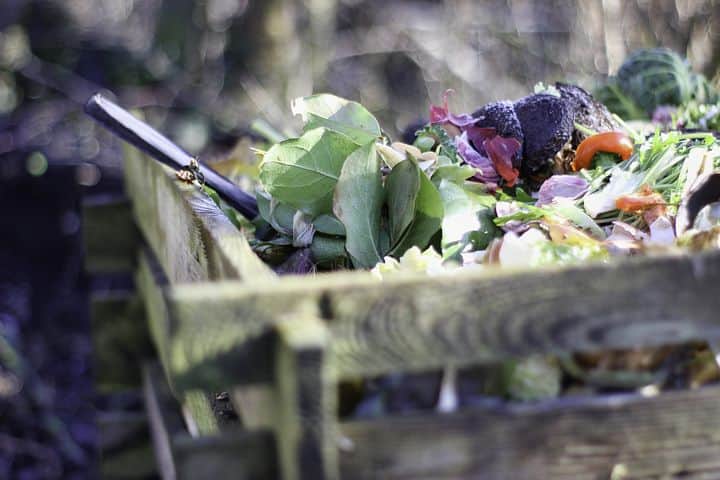
The easiest way to start anything is just to Start . Genius I know. But take some grass clippings, rake some leaves, and throw some food scraps in a cold compost pile. Keep adding anything you are throwing out (except plastic) along the way and in 6 months you will have finished compost ready to add to your garden and flower beds.
But here are a few guidelines to make it more simple and quick.
1. Choose the Right Location:
The ideal spot for your compost pile or compost bin should be in a sunny, well-drained area that is convenient for you to access. It should also be far enough away from your house or other buildings to prevent any unpleasant odors.
Tips for picking the right location
Avoid attracting pests
Compost piles can attract pests. You may want to ensure that your compost pile that has food scraps ripe for the local rodents, is away from your house and garage. Find an area that reduce the likelihood of attracting pests.
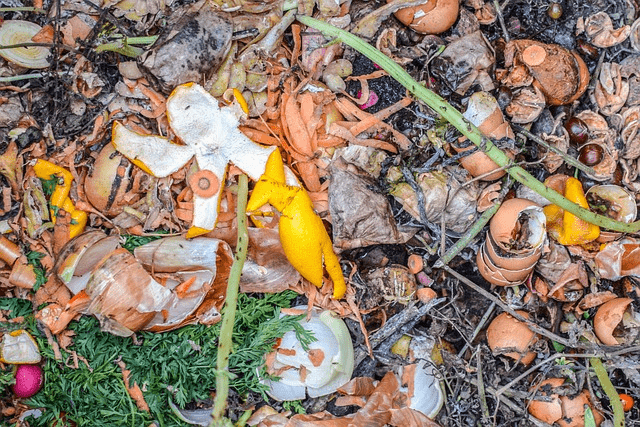
2. Collect the Right Organic Materials:
A successful compost pile relies on the right balance of carbon-rich brown materials, such as leaves and twigs, and nitrogen-rich green materials, such as food scraps and grass clippings. Aim for a ratio of about two parts brown to one part green. Avoid adding meat scraps, dairy products, or anything that has been treated with chemicals, such as pesticides or herbicides.
What can be composted?
Brown, carbon rich materials include:
Leaves
Shredded Wood
Saw Dust
Boxes
Shredded paper
Garden waste
Straw
Hay
Wood Ash
Green, nitrogen rich materials include:
Fruit and vegetable scraps
Grass clippings
Coffee Grounds
Food Waste
Tea Bags
Egg Shells
What to avoid
Carnivorous pet waste like dogs cats
meat scraps
Tips for collecting materials:
Careful of weed seeds:
One thing to watch out for is putting materials in your compost pile that may cause issues later. Weed seeds or seeds from an old pumpkin can start growing in your garden next year. Some are pleasant surprises while others are major annoyances. Hot composting will do wonders helping to reduce those pesky weeds from showing up in your well manicured garden.
Get the ratio right:
You are supposed to have 60% brown materials and 40% green materials is the ratio you are aiming to achieve. You can do this by using 3 buckets of brown to 2 buckets of green. However, this can be hard to keep track of unless you are using a lot of materials. So just keep in mind to not have the pile to moist, nor too dry.
Don’t throw it away:
Don’t forget to use what you have available every day. All summer you are cutting your lawn, use those grass clippings. Then throughout the year, take advantage of all that raking to add more carbon rich material. If you don’t want to rake go take all those bags of leaves your neighbors are setting out on the curb. And when you have that cozy fire going over the winter, make sure you through your ash into your compost pile.
Get the most of the food you buy:
American’s throw out 60% of their food scraps. That is an awful lot of composting materials ending up in landfills. Take advantage of natures wonders and use it to make a better environment.
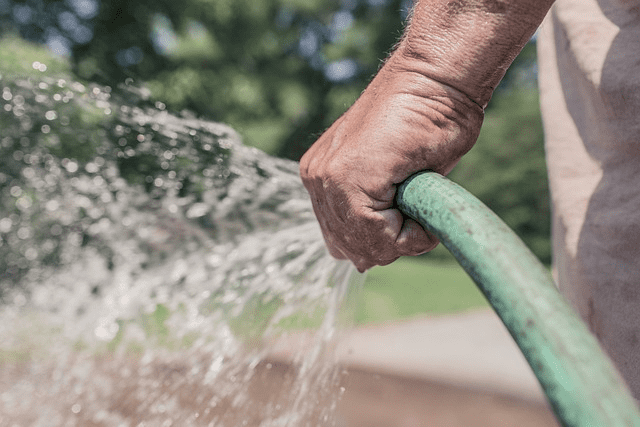
3. Keep your Compost Moist:
Composting requires moisture to facilitate the breakdown of organic matter. If your compost is too dry, the decomposition process will slow down. On the other hand, if it’s too wet, the material may start to rot rather than compost. Aim for a moisture level that is about as damp as a wrung-out sponge.
Tips to Keep Your Compost Pile Moist
Keep from smelling:
A compost pile will have food scraps, food waste, vegetable scraps, and other kitchen scraps that can start to become a smelly pile. A few things that will prevent a slimy, nasty pile will be turning it regularly as well as using enough brown materials to dry out the organic waste in the compost pile
Buy a thermometer:
Another way to tell if your compost is moist enough is ensuring you have a hot compost pile. You can order a thermometer to test to ensure the composting process is active quickly and easily. If it is too cold its likely you are missing moisture or your compost materials are not at the right ratio.
Cover Up:
You can also cover your pile with a tarp. While this helps keep heat in, the pile will generate its own heat in most climates. However, a tarp will help keep the moisture in the pile to let the composting process do its job.
4. Turn the Pile:
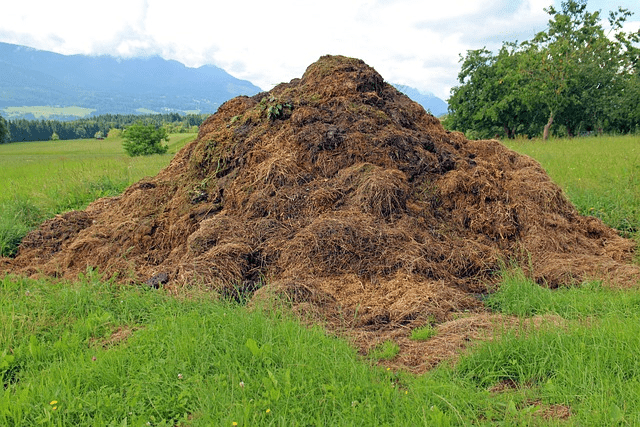
To help the composting process along, it’s a good idea to turn the pile every week or so. This helps to aerate the material and distribute moisture evenly. You can use a pitchfork or shovel to do this.
Tips for turning it over:
Kill those Pesky Weeds
If you start to see things growing in your pile make sure you are turning it on a regular basis. You don’t want those things growing in your garden later.

5. Be Patient With the Composting Process:
The composting process takes time, and the rate at which your materials break down will depend on a variety of factors, such as the size of your pile, the materials you’re using, and the weather, and the method you use. It may take several months to a year for you to have usable compost , but the end result will be worth it. Don’t forget to keep adding to your compost pile. There really is never enough.
Final tips:
Smells good:
Finished compost will smell earthy and be dark and rich. Use the fresh compost that you have created in your garden soil to add organic materials. Sometimes you might find a few things that have not completely decomposed. Its ok. Remove the big stuff from your compost pile and the rest will decompose in your garden.
Impatient. Speed it up:
If you are in a hurry use various tools like a compost tumbler or methods like hot compost pile. These and other methods will speed up the process and minimize the labor involved.
Money:
Remember you can save a lot of money. Compost in the store can be $10 per bag. This can easily add to $100s each season. Making your own compost to be thrown over you precious soil surface not only saves money on product you don’t have to buy, but prevents you from literally throwing your money in the trash.
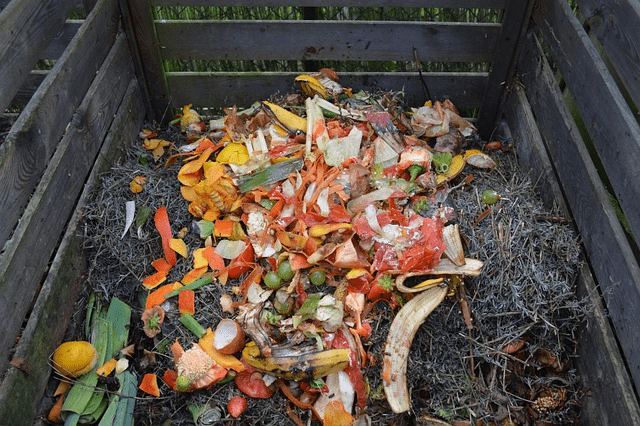
Alternates to the classic compost pile
Other ways to break down organic materials into speeding up your composting process.
Purchase a compost tumbler.
Just add daily kitchen scraps and some leaves and spin the wheel. Compost tumblers will provide good fresh compost quickly.
Use chickens.
Let them create a nice healthy compost pile in a ring by their natural scratching process. They will love it when you add food scraps to the compost pile and it will save on feed also. Be careful of coffee grounds with this method.
Build a bio reactor.
A great design that lets air flow within your compost to minimize effort and increase efficiency. Once the bio reactor is build you just start adding materials like yard waste, food waste, and carbon rich material. You could have finished compost with no real effort in like 3 months. And a lot of it.
Plastic storage bins
Storage bins are also a very cheap home compost bins to use around the house. Closing them up can keep heat in and pests at bay. But don’t forget it needs a good flow of oxygen, so shove a perforated pipe in the middle.
Electronic Indoor CompostING
They now make electronic composting machine for your kitchen scraps. Overnight it can decompose the organic matter that is put into the machine. You then just take it outside and add directly to your soil.
Create worm bins in your compost pile.
This is two fold of the great earth movers combined with amazing nutrients for your well cared for fruits and vegetables.
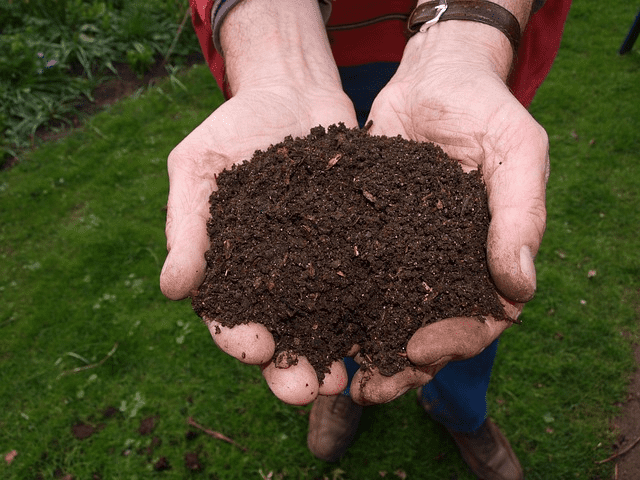
Wrapping Up
By following these tips, you can create a healthy, nutrient-rich fresh compost that will benefit your garden and the environment. Watch your plants thrive more than you have ever seen. And if somehow you are the one that can create too much compost to use please give to your local community garden. Happy composting!

